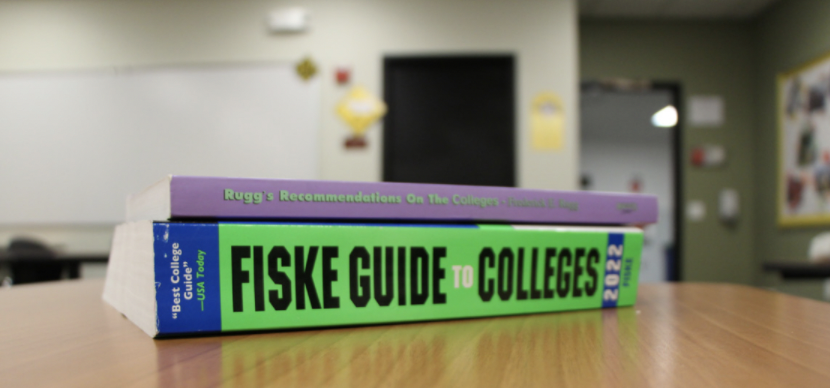Hunting for a New College? Try The Road Less Travelled
March 28, 2022
Everyone’s favorite bear, Winnie, once opined, “Before beginning a Hunt, it is wise to ask someone what you are looking for before you begin looking for it.” For those who are about to start their hunt for a college, that “someone” often seems to become “everyone”: college counselors, advisors, teachers, parents, friends, enemies, journalists, even fictional characters (Monsters University anyone?).
While nothing can beat the first-person experience of a college tour, no one could possibly visit all 5,300+ institutes of higher learning in the US, let alone even a handful of those international universities that may provide the perfect next home for a Benjamin graduate. Discussing your interests and hopes with a college counselor can provide another invaluable set of data, as these individuals are often aware of the special programs, nuances, and attributes that differentiate schools that may seem to be indistinguishable from each other.
For most students, though, the college search process falls heavily on internet searches and old-fashioned research. Each year, copies of US News and World Report rankings fly out of the doors of bookstores, news outlets proclaim the latest Forbes’ college rankings, and professional guides update their printed listings to reflect the latest reported data from a myriad of sources– some official, some nefarious. For example, last April, the federal government brought an indictment against a former business school dean and two of his subordinates for allegedly cheating to affect their college’s ranking.
But as any future farmer knows, every tree produces even a few bad apples among its best. Among the most respected printed sources for college information, the annual Fiske Guide to Colleges and Rugg’s Recommendations on the Colleges each offer a compendium of insight on many of the best schools out there. From hard data (tuition, enrollments, acceptance rates) to information (listings of majors and special programs) to lists of overlapping schools (identifying where students also applied) and preferences (“High Rank/Low Board Colleges,” “Underrated Colleges,” “ Outstanding Programs for Helping and Advising Athletes,” “Best Buys,” and “Index by Average Debt,” to name a few), these two sources alone can provide a solid start to the exploration process and give you a great way to head to counselor meetings with a rough idea of the college landscape you’re about to head out into.
The Pharcyde has scoured several sources over the past few weeks to offer a list of some schools that you may not have heard much about. We offer them to you here, in hopes that you may be inspired to look beyond the names you may be hearing whispered among the Senior class or your parents’ next social gathering. The list is not exhaustive, and is not meant to supplant the work you’ll undertake over the next few years with your families, counselors, and advisors.
If you’ve been considering a large public school, you might want to look at UC Santa Barbara, University of Wisconsin-Madison, University of Illinois at Urbana-Champaign, and George Mason University.
If you’ve been considering a large private school, you might want to look at Baylor University, BYU, and Drexel University.
If you’ve been considering a medium-sized private school, you might want to look at Santa Clara University, DePaul University, and the University of Denver.
If you’ve been considering a research university, you might want to look at Case Western Reserve University, the University of Toronto, and Quinnipiac University.
If you’ve been considering a small liberal arts college, you might want to look at the University of the South, Grinnell College, and Bates College.
If you’ve been considering a bigger liberal arts college, you might want to look at Ithaca College, LMU, Wesleyan College, Occidental College.
If you’re athletically-minded, you might want to look at the University of Notre Dame, Saint Louis University, Marshall University, and Xavier University (Ohio).
If you’re looking for a big school with a small feel, you might want to look at Miami University (OH), University of Delaware, University of Minnesota, and UNF.
If you’re looking for some test-optional schools, you might want to look at Butler University, Macalester College, University of San Diego, and Union College.
If you’re looking for inexpensive schools, you might want to look at the University of Missouri, many of the SUNY schools, Centre College, and Guilford College.



